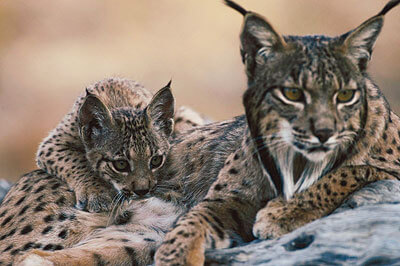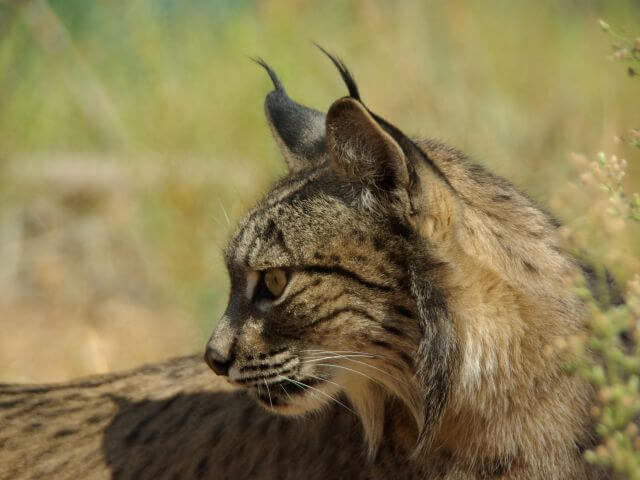Last month, a pair of Iberian lynxes were reintroduced into the wild in Portugal. The reintroduction took place in the Guadiana Valley Natural Park, situated in the southeastern part of the country. This is the first time the small wild cat has been released in Portugal. Several previous releases and reintroductions took place in Spain.
One of the cats came from Portugal’s Silves Conservation Center and the other from central Spain. Each cat was marked before it was released. After reintroduction, the cats are permanently monitored.
The Iberian lynx (Lynx pardinus) is native to the Iberian Peninsula, a 225,000 square mile area of the land that includes Spain, Portugal and Andorra, along with sub-territories of France and Britain.
Like other lynxes, the Iberian lynx has a short tail, long legs, tufted ears and fur projecting around the neck area that looks like a beard, The cat’s preferred habitat is scrub (woody plants and small trees) and its primary prey (90%) is rabbit.
The Iberian lynx is listed as Critically Endangered by several organizations, including the IUCN. At one point, there were less than 100 Iberian lynxes in the wild and only two breeding populations. The population decline has been caused by loss of habitat, loss of prey, and disease.
 A National Pact for the Conservation of the Iberian Lynx was signed in 2014 with 20 land-owners, researchers and non-governmental organizations.
A National Pact for the Conservation of the Iberian Lynx was signed in 2014 with 20 land-owners, researchers and non-governmental organizations.
Two thousand hectares (approximately 5000 acres) of land were secured for the first reintroduction into Portugal, and “more negotiations are taking place to at least double the amount of land.”
In 2013, a study published in the Nature Climate Change journal concluded that even with successful reintroduction programs, the Iberian lynx may become extinct by 2050 due to climate change.


this is a wake call people/thank the gods for this organizations.and the activest that are fighting for the health of these big endangerd CATS
we should all try to save the lynx–animals are people too!
Thanks for the link Helder!
VISIT: Lince Ibérico (Lynx Pardinus) S.O.S. >>> https://www.facebook.com/linceibericolynxpardinussos